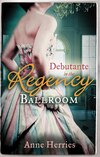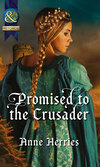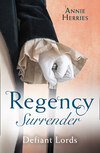Czytaj książkę: «Debutante in the Regency Ballroom»

About the Author
ANNE HERRIES, winner of the Romantic Novelists’ Association ROMANCE PRIZE 2004, lives in Cambridgeshire. She is fond of watching wildlife and spoils the birds and squirrels that are frequent visitors to her garden. Anne loves to write about the beauty of nature and sometimes puts a little into her books—although they are mostly about love and romance. She writes for her own enjoyment and to give pleasure to her readers.
In The Regency Ballroom Collection
Scandal in the Regency Ballroom April 2013
Innocent in the Regency Ballroom May 2013
Wicked in the Regency Ballroom June 2013
Cinderella in the Regency Ballroom July 2013
Rogue in the Regency Ballroom August 2013
Debutante in the Regency Ballroom September 2013
Rumours in the Regency Ballroom October 2013
Scoundrel in the Regency Ballroom November 2013
Mistress in the Regency Ballroom December 2013
Courtship in the Regency Ballroom January 2014
Rake in the Regency Ballroom February 2014
Secrets in the Regency Ballroom March 2014
Debutante
in the
Regency Ballroom
A Country Miss in Hanover Square
An Innocent Debutante in Hanover Square
Anne Herries

MILLS & BOON
Before you start reading, why not sign up?
Thank you for downloading this Mills & Boon book. If you want to hear about exclusive discounts, special offers and competitions, sign up to our email newsletter today!
Or simply visit
Mills & Boon emails are completely free to receive and you can unsubscribe at any time via the link in any email we send you.
A Country Miss in Hanover Square
This book is dedicated to
the memory of my mother, who once told me
my books would be enjoyed by hundreds of
thousands of people worldwide.
I laughed, Mum, but you were right!
Prologue
The Spanish Peninsula—1812
Three men lay slumped on the earth, which had been baked hard by the fierce Spanish sun. Harry Pendleton had his back against a rock. Of the three he was in the best shape. Max Coleridge was lying with his eyes closed, his blood-soaked shirt stuck to his chest in this damned awful heat. Gerard Ravenshead was fanning Max with a large leaf, trying to keep the flies from settling on his wound. A neckcloth was wound around a deep cut at the side of Gerard’s head.
‘I thought we were done for,’ Harry said. He was speaking his thoughts aloud, saying what they all felt. ‘What a mess!’
‘You can’t blame yourself for it, Harry,’ Gerard said and looked at him. ‘They knew we were coming. Someone must have warned them.’
‘Ten killed, and the three of us only got out by the skin of our teeth.’ Harry stood up and walked over to take a look at Max. ‘Somehow they must have got wind that we planned a surprise raid to take prisoners …’
‘One of the servants,’ Gerard replied and shrugged. ‘In this damned war I’m never sure whether we are fighting the French with the Spanish or the Spanish and the French.’
‘I wouldn’t trust their generals as far as I could throw them,’ Harry growled. He looked at the blood trickling down Gerard’s face. They had wrapped a kerchief round his head, but it wasn’t doing much good. ‘Your wound is still bleeding. Do you want me to take another look at it?’
‘You saved my life once today,’ Gerard said and grinned at him. ‘You don’t have to nursemaid me, Harry. I’ll manage. We have to get Max back to the village, and by the looks of him that means carrying him between us.’
Harry pulled a wry face. ‘The way you’ve been behaving out here, I’ve sometimes felt as if you meant to throw your life away …’ Gerard had gained a reputation as something of a daredevil.
‘There were moments when I didn’t much care if I died,’ Gerard admitted. He took a swipe at a fly buzzing about his face. ‘But when you’re facing death things come into perspective. I intend to live and return home and one day …’
Gerard left the sentence unfinished. Harry nodded. He knew something had been eating at his friend. He suspected it was to do with a young woman Gerard had been courting—and the tiny scar at his temple that he’d noticed when they first met in Spain after a year of not seeing one another. Gerard often rubbed at it when he was thoughtful, and the look in his eyes told Harry he was remembering something that made him angry.
‘I know what you mean,’ Harry said. ‘Soldiering is blood, sweat and tears—and that is the easy part.’ It was listening to the screams of dying men and knowing you couldn’t save them that hurt the worst. ‘Come on, then. Help me get Max on my back and I’ll carry him.’
‘I can walk …’ Max mumbled. ‘Just give me a hand up….’
‘Don’t be a damned fool,’ Harry replied. ‘You’ll be carried as far as we can make it. When we get near the village, Gerard will fetch help.’
‘I could walk with help.’ Max’s face set stubbornly as he attempted to rise. ‘Damn you, Harry. I’m not a baby …’
‘But I’m the superior officer here, so you will do as you’re told,’ Harry muttered. He grinned at Gerard. ‘There’s one thing, we’re bound for life by this day’s experience. It’s something none of us will forget—and if any one of us can help the other in future, we will …’
Max grunted as they hauled him to his feet, and Harry took him over his shoulder. Gerard nodded, his eyes hard but appreciative of his friend’s stubborn determination to take on the burden. He wasn’t sure he could have done it himself, though he would have tried.
‘Comrades in war and peace,’ he said. ‘Let’s get back. My head is fit to burst and Max needs attention …’
Chapter One
England—1816
Harry Pendleton saw the girl run across the narrow country road seconds before he pulled on the reins, bringing his horses to an abrupt halt. Jangling harness, the sound of snorting horses and the curses of his groom took Harry’s attention for a moment as he fought to control the startled beasts. They were not used to being so roughly used! Harry cursed loudly. Another second and he would have knocked the girl down! His heart had been in his mouth for an instant—and it had done his horses little good to have their mouths sawed at in that way!
‘What on earth do you think you were doing?’ he thundered, tossing the reins to his groom and jumping down to confront her. He hardly noticed her pale face or trembling hands. ‘That was a damned stupid thing to do! I could have killed you!’
‘Had you not been driving so carelessly, it would not have happened,’ the girl retorted, eyes flashing. She tossed her long hair, giving him a look filled with contempt. ‘These country roads are not made for such haste, sir. I had no idea that you would suddenly come round that corner like a bat driven out of hell …’
‘You must have heard the sound of my wheels,’ Harry retorted, though he knew that she had some right on her side. ‘What on earth possessed you to dash across the road in that way?’
‘I saw some primroses I wanted,’ the girl replied. ‘This is a quiet road, sir. No one ever drives the way you were driving.’
‘Possibly because they are none of them able,’ Harry retorted. Even as he spoke he realised that he sounded petulant and arrogant, which was far from his nature. ‘You should be more careful when crossing the road near bends in the road, miss …’ Harry belatedly became aware that she was rather lovely. Her hair had been tossed by the wind and looked like spun gold, and her eyes were so clear that a man might drown in them. He found himself staring like an idiot. ‘Forgive me, I do not know your name.’
‘Nor shall you,’ the girl replied, giving him a haughty stare. ‘Sir, I find you arrogant and rude and I shall say good day to you.’
Stunned, Harry watched as she ran from him, scrambled over a stile at the side of the road and set off swiftly across the fields. He came to himself in that instant, realising that he had handled the situation badly.
‘I am sorry …’ he called after her. ‘I was anxious because I might have killed you. I did not mean to be so harsh.’
The girl did not falter or look back. Harry continued to watch her for a few moments, then he shook his head and climbed back to the driving box. His damnable temper had let him down. It was not often he lost it, but for some reason he had done so this morning. Instead of shouting at her, he should have made sure that she was none the worse for her fright. For a moment he was tempted to go after her, but he was in a hurry; he had promised to meet his friends at a mill held locally at a certain time and was already late. He frowned as he began to drive at a slightly more sedate pace. It was obvious the girl was unharmed, but he had not made the proper enquiries. He ought at least to have asked if she needed his assistance, though it was self-evident that she did not.
A little smile touched his mouth. She had answered him with spirit. Clearly she had not suffered an irritation of the nerves, as most of the young ladies in town might have, had they been subject to such a display of bad manners from a man who was generally considered to be one of the politest men in society. However, from the look of her clothes and the way she had been roaming the countryside without a hat or a companion, she was just a country girl—possibly the daughter of the local vicar. It was unlikely he would ever see her again, and, while he felt a certain regret, the incident was soon pushed to a distant corner of his mind.
Susannah stopped running when she was out of breath. What a bad-tempered man the driver of that phaeton had been! Had he been a little more considerate, a little caring in his manner, she would have apologised, for she knew herself to be partly at fault. However, he had come round the bend at such a pace that it was a wonder he had managed to stop at all. She was fortunate that she had not been trampled beneath his horses’ hooves. If she had not felt so startled, she might have admired the way he handled his horses, which were clearly high spirited. However, the way he had shouted at her had put all thought of apology from her mind.
Frowning, Susannah sat down on a fallen log to recover her composure before going home. As her nerves ceased tingling, she suddenly saw the amusing side of the affair and laughed. It had been quite an adventure, and she had often longed for something of the sort. However, in her dreams the gentleman would smile and speak softly, making her heart beat faster. Her heart had indeed slammed against her chest, but from fright rather than pleasure. Now that she had begun to feel calmer, she remembered that he had been rather handsome—if you liked arrogant, rude men! She tossed her head and put the incident from her mind as she approached the cottage they had taken after poor Papa died. She must hurry; she had been out a long time and her mama would be looking for her.
Susannah walked into the cottage, carrying a basket of herbs and wildflowers she had picked in the hedgerow. Her fine gold hair had blown all over the place and her cheeks were pink from the fresh air. She looked beautiful, if untidy, and not quite the proper young lady. Her looks were misleading—she had been taught her manners and was in truth a well-behaved girl, though spirited and inclined to be reckless at times. She took her precious finds into the large kitchen, setting them down on the scrubbed pine table. The smell of baking was everywhere, tantalising and tempting. She felt hungry, her mouth watering at the thought of such a treat. Her hand was reaching towards a plate of cakes that were still cooling when Maisie walked in. Maisie had once been her nurse, and now she kept house for Mrs Hampton, turning her hand to anything that needed doing, because they could no longer afford the luxury of servants.
‘Now then, Miss Susannah,’ the woman grumbled. ‘You leave them cakes alone. Your mama has the Vicar and some friends coming for tea this afternoon, and I’ve used the last of the butter. At least there’s none to spare for more baking.’
‘Can’t I have just one?’ Susannah pleaded, her stomach rumbling with hunger. ‘I haven’t eaten since first thing this morning.’
‘You should have been here for your luncheon instead of wandering about the countryside like a hoyden.’ Maisie looked at her with disapproval, which masked the deep affection between them. ‘Go and change your gown before anyone sees you. It will be time for tea in an hour or so. You can wait until then.’
‘I’m hungry now,’ Susannah said and snatched a warm and chewy oat biscuit, fleeing from the kitchen with Maisie’s scolding ringing in her ears.
She sighed as she went upstairs to change out of the old gown she had worn for her walk. She had managed to get grass stains on the hem again, and there was a small rent where she had caught it on some briars, so it was a good thing she had chosen this gown. It was important to conserve her best things for special occasions these days. They had just enough money to live on and pay Maisie her meagre wage, but Susannah had no idea what they would do when they needed new clothes.
Everything had changed after her father died, for he had lost his estate by making unwise investments and at the gaming tables. Mama had a little money of her own, which she had inherited from her father, but the income was scarcely enough to keep them.
‘I do not know what to do, Susannah,’ her mother had told her when they moved from their comfortable house to this modest cottage. It had seemed bare and poor compared to the comfortable house they had been forced to leave, but somehow they had managed to turn it into a home. ‘If I release what little capital I have, we could afford a Season in town for you, but then we should have nothing left.’
‘And if I did not take, you would have given up your living for nothing,’ Susannah said. She was a good-natured girl and had accepted their downfall into poverty with good grace. ‘No, Mama. We shall manage as best we can. Perhaps I shall meet someone—a prince!—who will love me for myself and carry me off to his castle. I shall have jewels and beautiful clothes, and you will never have to worry again.’ Her smile was unconsciously wistful.
Mrs Hampton shook her head sadly at her daughter’s flight of fancy. ‘You are very pretty, my darling, but things do not often happen that way. I dare say someone will offer for you, but he may not be to your liking.’
‘You are thinking of Squire Horton, I suppose.’ Susannah pulled a face, for the Squire was past forty, a generous kind gentleman, who had buried two wives and had a brood of boisterous children. She appreciated his qualities, but found him rather large and a little too dull for her quick mind.
She flicked her long, honey-coloured hair back out of her eyes. It was always escaping from its ribbons and curling in tendrils about her face. She presented a charming picture, for she was truly beautiful, but she seldom considered her looks, though she knew she was pretty because everyone told her so. However, it had not turned her head, and she was generally popular with both the gentlemen and the ladies she met. Unfortunately, situated as they were, she met very few gentlemen that either she or her mama considered a suitable match. ‘Well, if nothing else turns up, I may be forced to such a marriage, Mama—but it is not yet too late for something exciting to happen.’
Susannah lived in the expectation of something exciting happening. She would meet a handsome man, not necessarily a prince, of course, but rich enough to keep both her and Mama in comfort. He would sweep her up on his horse and ride off with her to Gretna Green, where they would be married and live happily ever after, preferably in an ancient castle. Failing that, perhaps a relative they had never heard of would leave them a fortune. Mama said they had no rich relatives, but perhaps there was someone somewhere who might be kind to them.
Her biscuit finished, Susannah applied her mind to the little tea party her mother had planned for friends. She changed her old gown for a favourite primrose-silk afternoon dress and brushed her hair into order, tying it back with white ribbons. A white stole draped over her arms and she was instantly transformed from the hoyden, who had been traipsing the fields to find herbs her mama might use to make lotions and seasonings, into a young lady of some considerable style and beauty.
Susannah had an English rose complexion and sea-green eyes, her mouth soft and attractive. It was the kind of mouth gentlemen found irresistible and wanted to kiss, but she had not yet been brought out into society and could not guess at what might happen if she were. She sighed as she looked at her reflection in the dressing mirror. It was true that she was not ill favoured. If only they could afford a Season in town without ruining Mama! Surely then she could make a good marriage and rescue her beloved mother from the genteel poverty in which they now lived. Susannah did not care so very much for herself that they lived in a tiny cottage, but Mama had found it hard.
With an effort she banished her dreams of romantic love and handsome gentlemen who would beg for her favours. Mama was right: these things did not often happen. She might have to marry one of the gentlemen who called on Mama with gifts of fruit and vegetables from their gardens and looked at Susannah slyly whenever they got the chance, but she would not if she could help it!
She was about to go downstairs to the parlour when her bedroom door opened abruptly and her mother swept in. Wearing a gown of grey silk, Mrs Hampton was still an attractive woman, her colouring much as her daughter’s, but she often had an air of sadness, which, her daughter noticed, seemed to have vanished for the moment. Susannah had not seen her mother this animated since Papa fell into a decline after losing all his money and died of a putrid infection some nine months earlier.
‘Mama! What has happened?’ Susannah’s heart raced with anticipation, for she sensed her mother’s excitement. ‘You have news.’
Mrs Hampton waved a sheet of quality vellum at her. ‘I have had a letter from Amelia Royston. You must remember that we met her once in Bath? She was visiting with her sister-in-law, Lady Royston. I felt so sorry for her having to live with that harpy. Her brother is a gentleman, of course, but I am not sure that I like him …’ Mrs Hampton looked pensive, for her friend had not said much about her circumstances, but she had sensed her deep unhappiness at the time. ‘Well, as you may recall, I asked her to a party and took her to a dance at the Assembly Rooms. She fell into a habit of visiting us every day, and we have kept in touch ever since through letters. I remember she was so grateful for my kindness … it was before Papa—’ She broke off with a little choke, the sadness back in her eyes. ‘Anyway, she went to live with an elderly aunt soon after that and everything has turned out most fortunately for her.’
‘Yes, I remember Miss Royston,’ Susannah said. ‘What does she say in her letter, Mama?’
‘It is like a miracle,’ Mrs Hampton said and the light came back to her face. ‘Amelia’s aunt—Lady Agatha Sawle, I met her once, but you did not know her—well, she has died and left Amelia a fortune. She did not expect it. Indeed, she had no idea that her aunt was so wealthy. She knew she was to have something, but she says she had no expectation of being left more than an independence.’
‘How wonderful for her,’ Susannah said, her lovely eyes sparkling. ‘You see, Mama, exciting things do happen. Perhaps someone will leave us something one day.’
‘Amelia is so generous,’ her mother said and dabbed at her eyes with a lace kerchief. The scent of her favourite lavender water wafted towards Susannah. ‘She has offered you a Season in town, dearest. She knows of Papa’s misfortune and she wants to help us. She will pay all our expenses and give you a dowry of five thousand pounds. Five thousand pounds, Susannah! Such a huge sum—and she makes it sound nothing! It means you have a chance of making a decent marriage, my love.’ Mrs Hampton was quite overcome. Her hand trembled as she touched Susannah’s arm. ‘I can hardly believe that anyone would do such a thing, for we are not even family. However, that may be—’ She broke off mid-sentence. ‘Do you realise what this means, dearest?’
‘A Season in town …’ Susannah stared at her, disbelief, excitement and triumph warring in her head. ‘Oh, Mama, how good Miss Royston is! But what made her think of us?’
Mrs Hampton shook her head. ‘I really cannot imagine why she thought of us. She said it was because I was kind to her at a time when she needed friends, but I think she has other reasons.’ Susannah lifted her brows in enquiry, but Mrs Hampton merely frowned, clearly preferring to keep her own counsel. ‘I cannot tell, but I think she may be lonely. Her family is not kind, though she never complains. However, one knows …’ She looked thoughtful. ‘To give us so much is extremely generous, Susannah. I know one should not take charity, and I should not normally do so, but it is just what I have prayed for, my love. You deserve your chance and, if we are lucky, we may be able to repay Amelia for her kindness one day. Think of it, my love. You will meet everyone—Amelia is well connected and highly thought of in society. If you are fortunate … who knows what might happen!’
Susannah nodded, her face thoughtful as she looked at her mother. Some of the euphoria faded as she realised that Mama was expecting her to make a brilliant marriage and solve all their problems. She would be happy if that happened, of course, but she could not easily relinquish all her dreams of romance. She wanted to oblige Mama, but she also wanted to be swept off her feet, to fall madly in love. For some reason the picture of the outraged gentleman who had almost run her down flashed into her mind, though she could not think why—he had been abominably rude!
However, her overwhelming feeling was one of pleasure at the thought of her Season in town. It was what she had longed for, hoped for these past months since Papa died. If she were fortunate she would fall in love with a suitable gentleman, one who made her heart beat much faster, but who was also acceptable to Mama. Someone who might look a little like the rude gentleman she had met in the lane, but who was far more romantic!
‘I do not understand why Miss Royston is being so very kind to us,’ Mrs Hampton was saying. ‘But I shall write at once and tell her we are delighted to accept her generous invitation. She has asked us to join her at her house near Huntingdon next week so that we may all get to know one another in comfort. Then we shall journey to London together. She is sending her own carriage to fetch us.’
‘That is very thoughtful of her,’ Susannah said. She frowned as something occurred to her. ‘What shall we do for clothes, Mama?’
‘That is all taken care of,’ Mrs Hampton said. ‘Amelia says we must not worry about anything, for we may use her seamstress in town and send the bills to her!’
‘Mama! She will buy my clothes as well?’ Susannah looked at her mother in awe as she inclined her head, feeling overwhelmed. ‘She must be very rich. It is beyond all expectation.’
‘Yes, my dearest, I imagine she is very wealthy now, but she knows what it is to live on a small income, and to be treated ill by one’s relations. I think that is why she has taken it into her head to help us.’
Susannah nodded. Her mother’s friend was being extraordinarily kind to them. They could not have expected anything of the sort and it was a wonderful surprise. She could not wait for her adventure to begin! However, the next few days would fly by—she must get out all her clothes and see what could be done with them. Some of them could surely be refurbished with fresh ribbons. It would not do to impose on Miss Royston’s generosity more than was absolutely necessary!
She was smiling as she joined her mother’s tea party that afternoon, unconsciously practising her society manners. Soon now she would have the chance to shine in society drawing rooms—and who knew what might happen then! Dreams did come true sometimes, it seemed, for just an hour ago her hopes of a Season in town had been just that …
Susannah looked towards the house as a groom opened the carriage door and helped her down. It was a pleasant L-shaped country residence built of yellowish stone with an imposing front door and leaded windows. However, it was no larger than Papa’s house had been, modest by country-house standards, but the gardens were particularly beautiful and there were some graceful old trees. She thought that she would very much like to explore the garden at the earliest opportunity.
Susannah followed her mother into the front hall, smiling at a young maid who came to assist her. Mrs Hampton was speaking to a lady Susannah suspected must be Miss Royston’s housekeeper.
‘Miss Royston apologises for the delay in greeting you, Mrs Hampton,’ the woman said. ‘If you will allow me to take you upstairs to your rooms, she will be with you shortly. An unexpected visitor arrived just a few minutes ago …’
‘Yes, of course. It is no matter,’ Mrs Hampton said. ‘Come along, Susannah.’
Susannah hesitated. ‘Mama—do you think I might take a little stroll in the gardens? I shall be only a few minutes, but they are rather lovely. Would Miss Royston mind, do you think?’ She threw an appealing look at the housekeeper.
‘Miss Royston is a keen gardener. She has taken great pride in them since she came to live here,’ the housekeeper said and smiled at her. ‘You take a little stroll, miss. Riding in a carriage is so confining. If you stay close to the house, I can call you when Miss Royston is ready to receive you.’
‘Very well, you may go,’ Mrs Hampton said. ‘But do not go off on one of your long walks, for that would be very rude.’
‘No, Mama. I shall just wander as far as the rose arbour and back.’
Susannah went back towards the front door, which was opened for her by an obliging footman. She gave him a bright smile, feeling delighted to have a few moments of freedom before meeting her hostess.
When the carriage had stopped at the front of the house, she had caught sight of the rose garden. The bushes were well tended and growing lustily, though it was too early in the year for them to be at their best, of course. In another month or so this garden would be a riot of colour and she imagined the scent of roses would reach the house. Besides the roses there were wide beds of lavender, peonies and other perennial flowers. Miss Royston must spend a deal of her time in her garden; it was clearly well planned.
Susannah hesitated as she approached the rose arbour and heard a raised voice. The fencing had hidden the fact that there was anyone there; she was about to turn away when she heard her mother’s name.
‘Margaret Hampton is a good friend of mine. I made the offer, Michael. Nothing was asked of me, I assure you. I will not allow you to say such terrible things. Margaret and Susannah are not hangers-on. Nor will they take advantage of my good nature.’
‘You are a fool, Amelia,’ a man’s voice answered sharply. ‘Upon my word, I do not understand you! You refuse to make your home with Louisa and myself—and you open your home to strangers …’
‘I have told you that I shall never live under the same roof as Louisa again, Michael. Your wife does not like me. She never has and she never will.’
‘You were pleased enough to take advantage of my generosity before you inherited a fortune,’ the man snapped back irritably. ‘If Agatha had left it to me, with an income for you—as any sensible woman would!—none of this would have occurred. She might have known that you would not know how to protect yourself.’
‘If Aunt Agatha had wished to leave her money to you, she would have done so,’ Amelia replied, her voice calm but with an underlying anger. ‘She told me that she had done all she intended to do for you or your sons. We share the same father, Michael, but it was my mother of whom Aunt Agatha was so fond.’
‘I dare say, but Agatha was Father’s aunt and I am as entitled as you, Amelia. I did not fight the will; it would cause a scandal, and I dislike that of all things, as you know. However, you could have put things right. You could help your cousins, at least.’
‘I may do so in time if I feel they deserve it,’ Amelia said. ‘However, that is a matter for me. You may not command me and I shall not be bullied into …’
Susannah jumped guiltily as she heard a twig snap underfoot and realised that she had been eavesdropping. She moved away quickly, turning back the way she had come, running now because she believed that someone was leaving the shelter of the rose arbour and she did not wish to be seen.
Susannah was overcome with embarrassment and shame. She had overheard what was clearly an argument between Miss Royston and—she presumed, for she had heard the name—Sir Michael, Miss Royston’s brother. What a revealing argument! She would not have listened if she had not heard Mama’s name, but she had wanted to know what was being said and could not leave when what she heard was so very shocking. Poor Miss Royston! Mama was right to suspect that she had been bullied and made unhappy by her family. It was not surprising to Susannah that she did not wish to live with them ever again.
Susannah stood at the front of the house, looking back at the tree-lined avenue, composing her thoughts. It was uncomfortable to know that Miss Royston’s brother had been warning her of hangers-on. Had she heard only that, Susannah might have begged her mama to take her home at once, but she had heard Miss Royston’s spirited defence of her friends—and she was quite certain that Sir Michael was merely angry because he wanted his sister’s fortune for himself! What a truly unpleasant man he must be to speak to his sister in that tone!




























